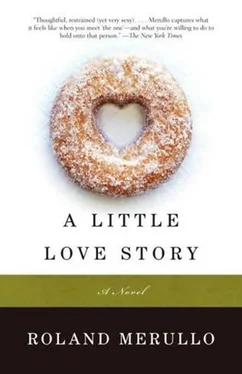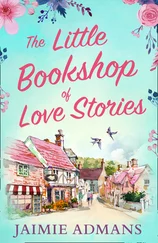At eight o’clock I kissed Janet twice on the ear, and whispered something there, then I walked with my mother down to the elevator and out through the quiet lobby. She hooked one arm inside my elbow.
“A ticket,” my mother said, when we were close enough to the truck to see. Cold gusts were whistling off the river in the darkness, twirling up eddies of grit and brittle leaves.
I stood next to the truck in the cold with the parking ticket in my hand and my back to the hospital and my mother. Cars and trucks bunched up on Storrow Drive, then the light changed and the lines of traffic moved forward, a holiday pulse of steel, smoke, and glass. I looked out over the lanes of cars, at the arc of lights on the bridge that ran past the science museum and into Cambridge. It seemed to me then that there certainly had to be a God. But that He or She or It was a mean-hearted trickster God, a God of impossible coincidences and patterns, a God who let you walk along the levee for a while on a sunny winter day and then shoved you off into the icy water. God of men and women leaning out of a broken window on the 103rd floor with a thousand-degree jet fuel fire below them and their kids in elementary school; God of the screaming businesswoman going through the sky in an upside-down aluminum tube, and the man she shouldn’t have been sleeping with beside her; God of the choking and the suffocating and of their mothers and aunts and lovers. How could Ellory believe the way he believed? How had my own mother lived with seeing so much suffering all those years and not thrown herself off a bridge?
I tore the ticket in half and then in half again and then in twenty bright orange pieces and tossed the pieces up into the wind and turned so as to have the satisfaction of watching them scatter. Some of the pieces caught in my mother’s golden-dyed hair. She was watching my little performance without blinking-sadly, it seemed to me-as if she had expected more from her son the doctor. She hadn’t said two audible words in two hours. I could see that she was working hard at something: the muscles near her eyes were pinched and she would periodically run the side of her right index finger across the corner of her eyebrow. Everything was a puzzle, and the puzzle had a billion scattered pieces, and she was searching through them to find just two that fit, just two, a starting place, a handhold.
I picked the orange scraps out of her hair, helped her into the cab of the truck, and drove her back to Apple Meadow. Ellory had told me once that the wise monks of the third century had come up with the idea that suffering was grace. It was absurd. The hot desert sun had done them in. “Suffering is grace, Mum,” I said bitterly. She said nothing.
At the Meadow, I walked her up the path through the cold wind, and then past the receptionist and down the salmon-walled hallway to her neat, too-warm room. While I was helping her off with her winter coat she became agitated, moving her head quickly from side to side and twisting around, something I had never seen her do. When the coat was finally off her shoulders she blurted out three words with a strange note of triumph in her voice. I hung the coat in her closet, straightened out the dresses and blouses there, closed the door. I turned back to look at her, to say good-bye, and she said the words again the same way: “Living low bar.” She was looking happily and expectantly at me, waiting for us to have one of our medical conversations, to make contact in that place again. But I was worn down by the day, and the words meant nothing. I only nodded and told her I loved her, and that my brother Jake loved her, and Lizbeth loved her, too, as I always did just before I left.
NEXT MORNING I drove to the hospital and parked in the pay garage. Janet was sitting up against the raised back of the mattress. The nurses had brushed her hair, and it lay smooth and black and without luster on the pillowcase and on her thin shoulders. The skin beneath her eyes was as dark as if she’d been punched. The oxygen machine hummed. The ceftazidime and gentamicin dripped into both arms. Really, the only parts of her face that looked right were the almost-black irises, which she turned on me the second I stepped through the door.
“I’m the orgasm counter from the Guinness Book of World Records ,” I said, because the room smelled like death to me, and I did not want that to show on my face. “We understand you’ve made a claim.”
She gave me a frail smile and turned her eyes to a little half-hidden alcove where the door to the bathroom was, and where her mother was standing.
I said, “Good morning, world’s greatest cook,” and drew a second flimsy smile before Amelia went through the door and we heard the lock’s loud click.
“Nice going,” Janet said. Her voice was very hoarse.
“I love the taste of shoe leather in the morning. How are you?”
She shrugged and turned away. Her eyes filled up.
I stood next to the bed, took hold of her fingers, and looked at her hair on the creases in the pillow, then swung my eyes around the room-at the plastic bag that had been put into the wastebasket as a lining, at the empty second bed with its yellowish curtain, at the clear plastic box on the wall for used needles. Everything in the room was perfectly clean but slightly worn and plain, all ready for the next person who would come through, the next routine catastrophe.
“Mom and I have been having a little spat,” Janet said, without turning her head back to me. Her lips were dry and cracked.
We heard the toilet flush, and then her mother struggling momentarily with the door latch.
“About what?”
Janet didn’t answer. Before her mother came out of the bathroom she said, still not looking at me, “What would I have to pay you to get me out of here?”
“A full body massage and eighteen percent of your next check,” I said, and then her mother was with us, asking me to tell her what the doctors had said. I had gone home from Apple Meadow and sulked and dabbed paint on a canvas in a lazy, useless way, and only remembered about calling her at around one-thirty in the morning. I had dreamt a repeating dream in which I was driving a tractor-trailer truck for the first time and having to navigate impossible corners on narrow streets, steer it indoors between a table and chairs, reach my foot down for a brake that wouldn’t work; I had eaten three eggs and sausages and a bran muffin at Flash’s with the early morning crowd; I had waltzed into her daughter’s hospital room making sex jokes. And all that time she had been waiting to hear some piece of news on which she could set down, for a few minutes, her impossible cargo of worry.
I said, “The doctor told me we’d have to wait and see how the medicine worked.”
Even that piece of non-news sparked little wildfires of hope on Amelia’s cheeks. She sat on a chair next to the IV pole and looked at her daughter with her eyebrows up and her lips compressed. It was a “see, I told you” look.
Janet was not in the mood for “see, I told you” looks. “Could we stop playing this game, Ma?” she said. “Please.”
“Don’t you dare give up,” her mother said. “It’s a sin to give up. And you know it is. Don’t you dare do that to me.” And so on.
From where I stood on the other side of the bed I thought I could see a line of history running between them, a string of mother-daughter quarreling that stretched back to how much Sesame Street her daughter was allowed to watch.
“Ma, I’m just tired of fighting.”
“You fight. I don’t care how tired you feel. You fight, Janet Rossi.”
“You didn’t have anything jammed down your throat before breakfast, Ma.”
“I don’t care!”
Читать дальше












